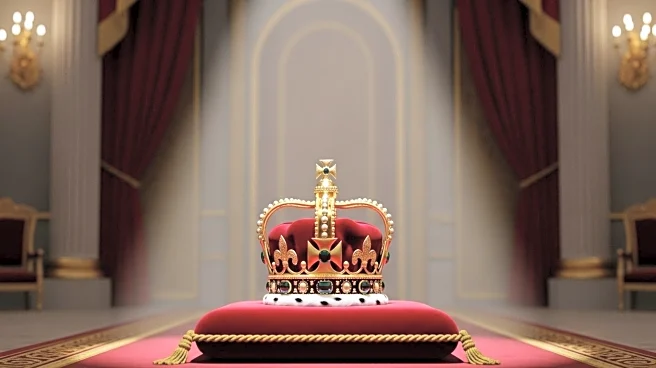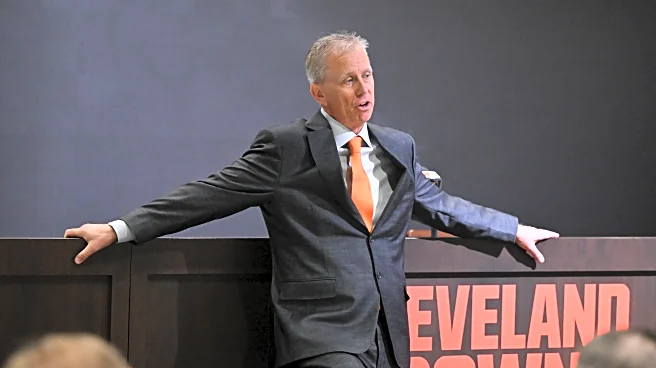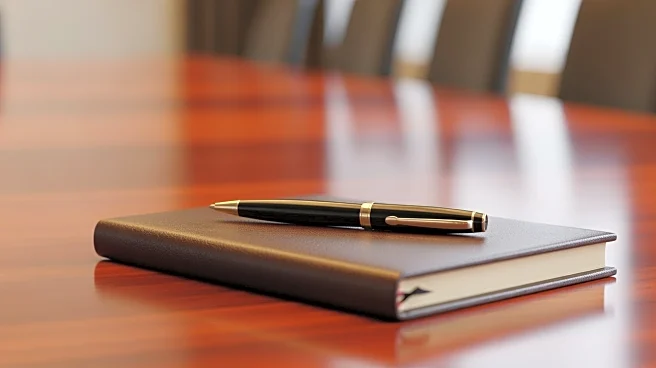What's Happening?
King Charles III is preparing to host U.S. President Donald Trump for his second state visit to the United Kingdom. The event is set to take place at Windsor Castle, where extensive preparations are underway. Staff are setting up a 50-meter-long mahogany table, and grooms are polishing the hooves of horses for the royal carriages. The military honor guard is rehearsing to ensure precision during the ceremonies. This visit is designed to showcase the UK's hospitality and strengthen ties with the U.S., amidst President Trump's America First policies that have affected trade and security relationships. The visit will include a state banquet featuring tiaras, brass bands, and a display of the monarchy's soft power.
Why It's Important?
The state visit is significant as it aims to bolster diplomatic relations between the UK and the U.S. at a time when President Trump's policies have challenged traditional alliances. The UK is seeking favorable trade terms and support in addressing Russian aggression in Ukraine. The visit represents a strategic use of the monarchy's soft power to influence international relations. By hosting President Trump, the UK hopes to foster goodwill and potentially secure concessions on key issues. The event underscores the importance of ceremonial diplomacy in maintaining and enhancing bilateral ties.
What's Next?
Following the state visit, discussions between President Trump and UK Prime Minister Keir Starmer are expected to take place at Chequers, the country estate of British prime ministers. These talks may focus on trade agreements and collaborative efforts in addressing global challenges such as the situation in Ukraine. The visit could lead to further diplomatic engagements and negotiations aimed at strengthening the partnership between the two nations.
Beyond the Headlines
The use of royal ceremonies to influence diplomatic relations highlights the enduring role of the monarchy in British foreign policy. The event may also reflect broader cultural and historical ties between the UK and the U.S., emphasizing shared values and traditions. The visit could have long-term implications for how the UK navigates its post-Brexit foreign policy landscape.










